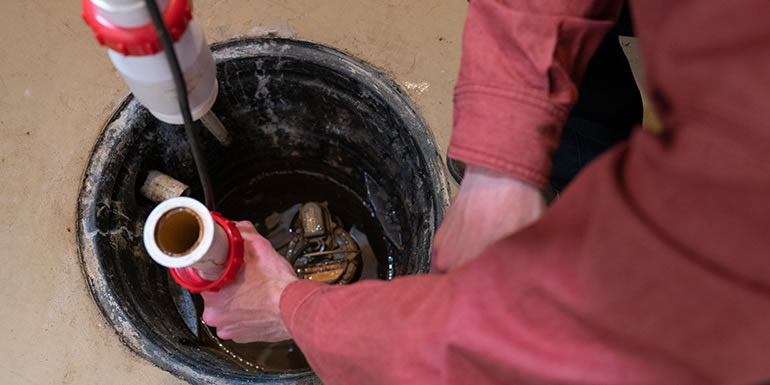If you live in Florida, then you already know the drill. Hurricane season rolls around, you stock up on water and batteries, board up the windows, and hope for the best. But your home is at risk of flooding even when there's no hurricane on the radar.

In fact, the Sunshine State's unique combination of geography, weather patterns, and soil conditions makes flooding one of the most serious threats to your property and peace of mind. A sump pump installation could make the difference.
In this brief article brought to you by Mr. Rooter Plumbing, we share our two cents on how you can gather your defenses. If you’d rather consult a local plumber, then call or message Mr. Rooter to get in touch.
Yes, hurricanes and tropical storms are obvious threats. When these massive weather systems slam into Florida's coastline, they can dump more than a foot of rain in just a few hours. Suddenly, neighborhoods that seemed perfectly safe are underwater.
Then there's Florida's famous afternoon thunderstorms. During summer months, these storms appear almost daily to drop intense rainfall in short bursts.
But storms and hurricanes aren't the whole story. Florida sits barely above sea level across much of the state. In some coastal communities, high tide alone can cause water to bubble up through storm drains. Add a full moon and you might see streets flood without a single rain cloud in sight.
Then, there’s the water table – the level where groundwater sits beneath the surface. In many areas, you only need to dig down a few feet before hitting water. This means your home's foundation is constantly dealing with groundwater pressure trying to seep inside.
The soil doesn't help either. Much of Florida sits on limestone and sand; these don't absorb water efficiently. When heavy rain falls, it pools on the surface rather than soaking into the ground. This standing water seeks the path of least resistance… often right into your basement, crawl space, or ground-level rooms.
Many Florida homeowners have learned this lesson the hard way. You might not see dramatic scenes of furniture floating down your hallway, but even minor flooding causes serious problems.
Carpets and drywall absorb water like sponges, and the structural damage can be devastating. Moreover, electrical systems can turn the scene into a nightmare if they contact moisture and water.
Then there is water damage to belongings you can’t replace. Think family photos, important documents, and heirlooms passed down through generations.
Insurance might cover some losses, but the emotional toll and hassle of dealing with flood damage is something no one wants to experience.
A sump pump is essentially an automatic water removal system installed at the lowest point of your home. It sits in a pit (called a sump basin) dug into your basement or crawl space floor.
When water accumulates in this pit (whether from groundwater seepage, heavy rain, or drainage issues), the pump automatically kicks on and ejects the water away from your foundation through a discharge pipe.
Whether you're at work, on vacation, or sound asleep, your sump pump monitors water levels and springs into action the moment flooding threatens your home. Just make sure to maintenance and test it regularly.
Regular maintenance keeps your pump ready when disaster strikes.
Test it a few times a year by pouring water into the pit and making sure it activates. Clean the inlet screen, check the discharge pipe for blockages, and ensure the backup battery holds a charge.
If you notice any issues, then contact Mr. Rooter Plumbing for plumbing repair service in Ellenton, FL as soon as possible.
A broken pump during hurricane season is like having a fire extinguisher that doesn't work – it defeats the entire purpose.
Your plumber just delivered the news: your home needs repiping. Those galvanized steel pipes that have served faithfully for 60 years are finally giving up. Or…
If you notice water pooling on your floor, you may feel frustrated… but you’re also fortunate. Visible leaks announce themselves early. Hidden leaks do not. In fact, many of the…
Gas lines are the conduits that carry natural gas to your appliances and equipment, and these pipes deserve praise and demand attention. A damaged or leaking gas line is not…
Faucets have come a long way from the simple knobs and spouts many of us grew up with. Today’s kitchens and bathrooms often feature modern designs that add convenience, style,…